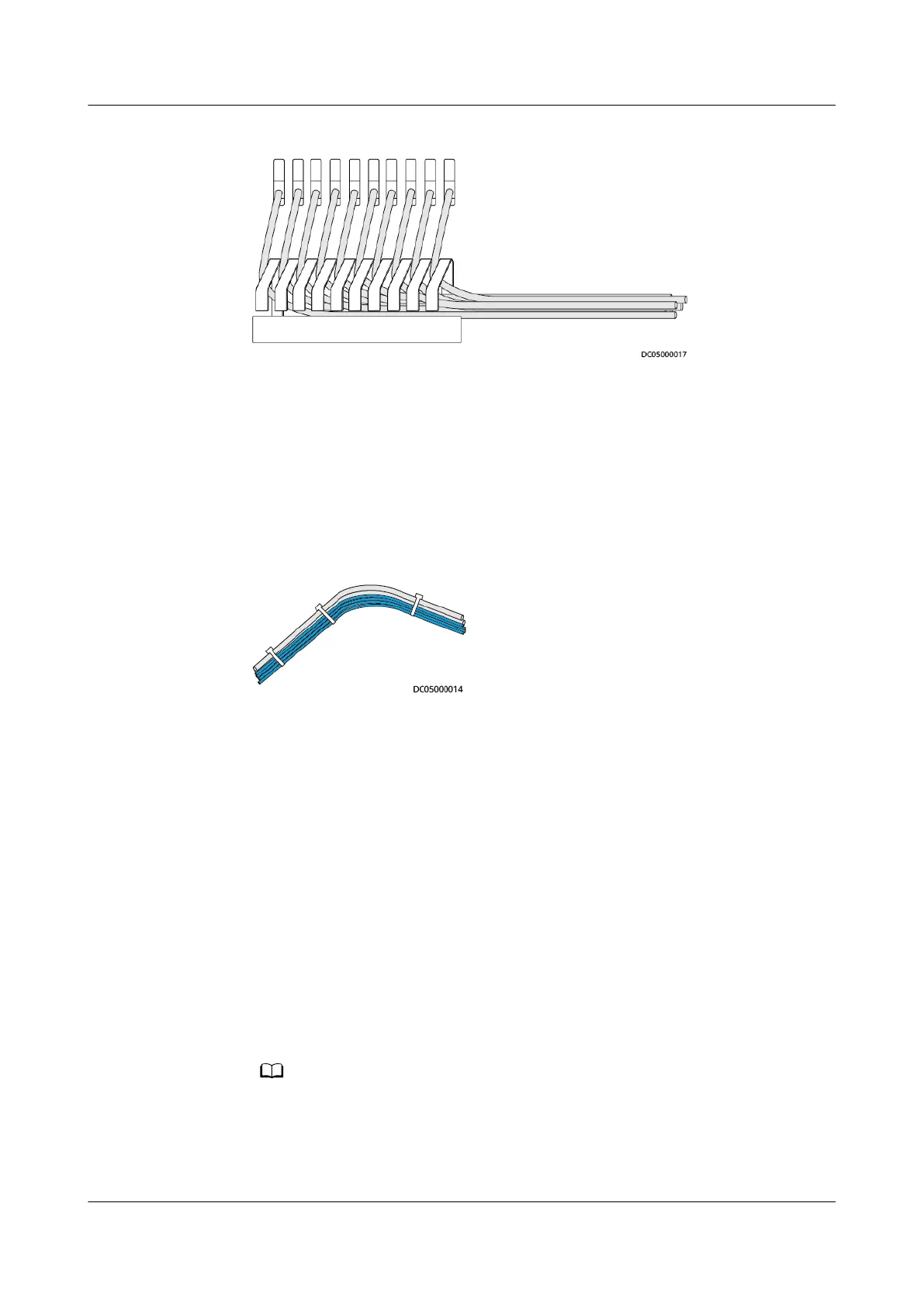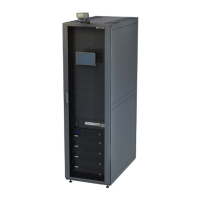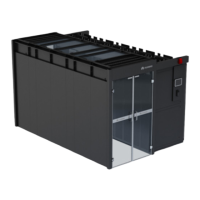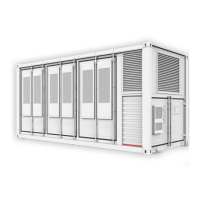Figure 4-95 Cable organizer
3. Route and lay out a large number of cables in dierent areas to ensure neat
cabling and facilitate cable search and maintenance.
4. Route several
at cables along the same path and then overlap them as one.
5. Arrange cables on distinct layers and prevent cable tangles that are avoidable
when cables in
dierent colors are bound together, as shown in Figure 4-96.
Also comply with these rules when cables of dierent thickness are bound
together. Arrange cables by thickness when arrangement by thickness
conicts with arrangement by color.
Figure 4-96 Binding cables in dierent colors
Cable Spacing Requirements
Comply with the following requirements if possible to lay out
dierent types of
cables:
1. Separate AC and DC power cables from diverse non-shielded signal cables.
Keep the cable spacing greater than 100 mm or use grounded metal for
isolation purposes. Do not bind the cables together. Preferentially route the
cables along
dierent sides of cabinets.
2. You are advised to route network cables and optical cables separately.
Safety and Reliability Requirements for Routing and Binding Cables
1. Unless otherwise specied in a design le, ensure that the bend radius (R) of
a cable meets the following requirements:
– Common cable: R ≥ 3d
– Optical cable: R ≥ 40 mm
R indicates the bend radius, and d indicates the cable diameter.
2. Reserve slack at cable connection positions to facilitate connection and
disconnection and to prevent stress. Do not leave the cables tight and prevent
connector misalignment, as shown in Figure 4-97.
FusionModule500 Smart Mini Data Center
User Manual 4 Installation Guide
Issue 02 (2020-12-25) Copyright © Huawei Technologies Co., Ltd. 133
